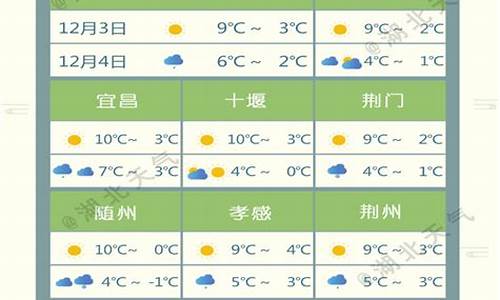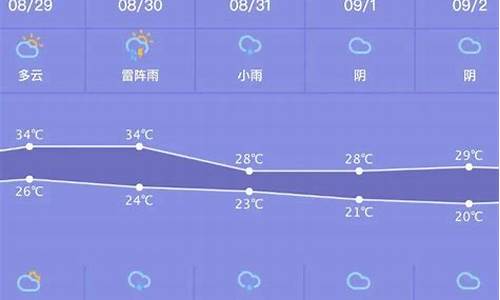北京天气怎么样英语翻译_北京天气怎么样用英语怎么说同义句
1.五年级下册英语复习资料

一、主要句型:
what"s the weather like?
how is the weather?
how do you feel about the weather of somewhere.
How about the weather?
How "s the weather =What"s the weather like
What"s the whether like today?
like是做介词,在这里what是作为名词,how是一个副词.名词才需要用到介词,副词不需要.
或者如果你还是不明白,可以从意思上来理解.
what"s the whether like today?和How"s the whether today?其实都是今天的天气怎样的意思.
可是为了让你好理解,你可以这样翻译:
what"s the whether like today?今天的天气像什么?像就是like,什么就是what.所以what能like并用很容易解释.可是你有见过人家:今天的天气像怎样?意思是like不会跟怎样(即how)连接.
其实口语当中是没什么区别的.
就像 今天什么天气? 今天天气怎么样? 一个意思的不同表示而已
二、用英语询问天气情况
How’s the weather today?今天天气怎样?
What’s the weather like today? 今天天气怎样?
How’s the weather tomorrow? 明天天气怎样?
What was the weather like yesterday?昨天天气怎样?
What will the weather be like tomorrow? 明天天气怎样?
How’s the weather in Beijing in summer? 夏天北京天气怎样?
What’s the weather like in London in winter?伦敦冬天天气怎样?
Is the weather always like this? 天气老是这样吗?
Is it always as hot (cold) as this? 天气总是这样热(冷)吗?
What do you think of the weather here? 你认为这儿天气怎样?
How do you like our weather?你认为我们这儿天气怎样?
What’s the temperature today, do you know? 今天的气温是多少,你知道吗?
What does the weather forecast[man] say?天气预报是怎么说的?
What’s the weather forecast for tomorrow? 明天的天气预报怎么说?
What’s the erage temperature in London on a summer’s day? 伦敦夏天的平均气温是多少? ~
询问今天的天气:
How’s the weather today?
(今天天气怎么样?)
What’s the weather like today?
(今天天气怎么样?)
What sort of day is it?
(今天是什么样的天气?)
询问昨天的天气:
What’s was the weather like yesterday?
(昨天的天气怎么样?)
How was the weather yesterday?
(昨天的天气怎么样?)
询问明天的天气:
What’s the weather forecast for tomorrow?
(明天的天气预报怎么说?)
What will the weather be like tomorrow?
(明天的天气会怎么样?)
What’s the weather going to be tomorrow?
(明天的天气怎么样?)
三、What"s the weather like in spring?春天的天气怎么样?
句型结构为:What"s the weather like+表示地点或季节的介词短语?
这是一个由what引导的特殊疑问句。
注意在表地点或季节的单词前面要加上介词(如in,at等)。
此句型的答语通常是:It"s+表示天气情况的形容词.
例如:—What"s the weather like in Harbin in winter?哈尔滨冬天的天气怎么样?
—It"s very cold.天气非常冷。
生活实例:小朋友们,你们知道吗?季节变化,天气也随之变化。地理位置不同,天气也就不同。如果你想知道北京春天的天气情况,就可以这样问:What"s the weather like in Beijing in spring?北京春天的天气怎么样?
四、询问天气情况的其他表达方式
“How"s the weather+表示地点或季节的介词短语?”也可以用来询问天气情况。
例如:—How"s the weather in Beijing?北京的天气怎么样?
—It"s very warm.天气非常暖和。
“How is the weather?”也是询问天气状况的常用句型,与“What"s the weather like?”意思相同。需要注意的是用what提问时,其后有介词like;用how提问时,其后没有介词like。
例如:How"s the weather today?=What"s the weather like today?今天天气怎么样?
五、和天气有关的词
warm温暖的 sunny/fine晴朗的rain下雨 wind刮风 snow下雪 hot热的 windy有风的 fog雾
cold冷的 cloudy多云的 cool凉爽的 rainy下雨的 shower阵雨 breeze微风 storm暴风雨
1,how is the weather in someplace during spring(summer/autumn/winter)
或者what is the weather like in someplace during spring(summer/autumn/winter)
2,天晴的sunny,相关的有温暖的warm,炎热的hot,干燥的dry,舒适的comfortable等
多雨的rainny,相关有潮湿的wet,寒冷的cold等
多云的cloudy,起风的windy,下雪的snowy等等
不同天气做的事情是指什么?
make a snowman(snowy) ,fight with snowball(snowy),swim(hot),fly a kite(windy),wash some clothes(suuny),play games outside(sunny)
是不是这种啊?
六、作答
今天天气如何?------How is the weather today?
今天天气不错!------It"s a nice
day today!
五年级下册英语复习资料
作为一名为他人授业解惑的教育工作者,有必要进行细致的教案准备工作,教案是教学活动的依据,有着重要的地位。来参考自己需要的教案吧!以下是我整理的九年级的英语教案,希望对大家有所帮助。
九年级英语教案 篇1UNITS 5-6
基础知识巩固
I 词组
1)belong to 属于
2)make up 形成;组成;构成
3)use up 用完;用光;耗尽
4)turn off 关掉
5)on display 展览;陈列
6)suit sb. (fine) (很)合某人的意;对某人(很)合适
7)to be honest 老实说;说实在的
8)be bad for 对……有害
9)stay awayfrom与……保持距离
10)be in agreement 意见一致
II 句型
1 It must belong to Carla. 它一定属于Carla.
同义句:It must __________ __________.
2 It’s crucial that I study for it because it makes up 30% of the final exam. 我复习准备这次考试很重要,因为它占期末考试成绩的30%
本句含有主语从句,请把它放在句首改写:
_________________________ is crucial because …….
3 There must be something visiting the homes in our neighborhood. 一定有什么东西光顾我们的左邻右舍。
同义句:Something must ______ _______ the homes in our neighborhood.
提示: there be sth. doing… = Sth. be doing …..
例如:There is a boy playing outside. = A boy is playing outside.
4 I listened to one called Heart Strings. 我听了一首名为《心弦》的歌曲。
called Heart Strings.过去分词短语做定语。
过去分词短语作定语,可以在前面加上关系代词,分词前加上be, 即可构成含有定语从句的复合句。请尝试把本句改为复合句:
I listened to one ______ _______ called Heart Strings.
注:这样便于理解为什么用过去分词:表示被动含义。
拓展:请分析这两句话:它们的意思一样吗?
1) Do you know the boy ( who is) calling Tom?
2) Do you know the boy (who is) called Tom?
5 Whatever you do, don’t miss the exhibition. 无论你干什么,都不要错过这次展览。
whatever you do = ______ _______ _______ you do
6 I like groups that wear really cool clothes. 我喜欢穿的`很酷的组合。
本句含有定语从句,关系代词that做从句的主语。请思考:为什么wear不加-s ?
练习
I基础知识
1 用情态动词must, may , might, could, can’t填空
1)The dictionary _______ be mine. It has my name on it.
2)The CD _________ belong to Tony because he likes listening to pop music.
3)The hair band ________ be Bob’s. After all, he is boy!
2 选择正确单词填空。
during, ointment, anxious, attempt, might,
too many, symphony, crucial
1)The prisoners ______________ to escape, but failed.
2)I he an _______________ at 3 p.m.
3)There are extra trains to the seaside _________ the summer.
4)I’m very __________ about my son’s health.
5)There would be _______ people in the _________ hall.
6)Getting this contract is __________ to the future of our company.
7)If you he any idea where it _________ be, please call me.
3 按照要求写句子。
1)Albert found the key. I lost the key yesterday.(合成一句)
___________________________________________________
2) Where is the beautiful picture? You bought it last week.(合成一句)
___________________________________________________
3) She was ill, but she still went on working.(同义句)
________ she was ill, she still went on working.
4) I think that it is important to master a foreign language. (同义句)
I think ______ ______ _______ ______ a foreign language.
5) Mother didn’t do the work for her little son, but taught him how to do it. (同义句)
Instead of _______ ________ ________ for her little son, she taught him how to do it.
4 完成句子。
1) Tom在这场篮球赛中表现出色。
Tom _________________ in this basketball match.
2) 她喜欢能够一起舞起来的快歌。
She likes music _______________________.
3) 王叔叔教我们如何修自行车。
Uncle Wang teaches us _______________________.
4) 这幢建筑使我想起了我的母校。
This building __________________________.
5)这顶帽子非常适合您,女士!
This hat _____________________, madam!
II 中考链接
1 选择
1) I prefer watching TV to _________ music every day.
A. listen to B. listen C. listening to D. listening
2) Do you know what ________________?
A. his fourite song is B. is his fourite song
C. his fourite song D. his most fourite song is
3) Mary sings English songs well and ____________.
A. Jane does too B. either does Joes
C. so Janes does D. so does Jane
4)What do you think of the football match?
A. How do you think of B. How do you like
C. What do you think D. What do you like
5)This question is _________ easy, all the students can answer it.
A. too much B. too many C. much too D. many too
6)He _____ would do great thins should not attempt them all alone.
A. whom B. who C. whose D. which
2 句型转换(同义句)。
1) The bench was so long that all of us were able to sit on it.
The bench was long enough _______ all of us _______ _______ _______.
2) Mary spent three thousand yuan on the color TV set.
The color TV set _______ ________ three thousand yuan.
3) I don’t know either Russian or French.
I know _________ Russian __________ French.
4) The mother told her son, “Don’t read in the bed.”
The mother ________ her son ________ ________ read in the bed.
5) They prefer this kind of fruit to that kind.
They like this kind of fruit _________ __________ that kind.
6) I didn’t know how I could repair the bike.
I didn’t know ________ ________ repair the bike.
九年级英语教案 篇2Unit1SmileandSayHello
一、教学内容:
Unit1SmileandSayHello
二、教学目标
知识目标:熟练掌握本单元课文中的单词,短语和句型。
能力目标:培养学生的综合运用知识的能力。
三、教学难点:
培养学生的综合能力
四、本单元重点知识:
单词:本单元所有单词(单词表中)
短语:
1.takeplace发生
2.liveupstairs住楼上
3.beafraidof害怕……
4.keepsb.fromdoingsth.阻止某人做某事
5.openone’sheart敞开心扉
6.theanswerstothesequestions问题的答案
7.walkwithhisheaddown低头走路
8.lookawayfromothers把视线从别人身上移走
9.pretendtodosth装做某事
10.doone’sbesttodosth.竭尽全力做某事
11.withasmile微笑着
12.smileatsb.冲某人微笑
13.thewindowoftheheart心灵之窗
14.raiseyourhead抬起头
15.aslongas只要
16.aswellas还,而且
17.giveyourwarmhandstothem向他们伸出温暖之手
18.goodlucktoyou祝你好运
19.lookintosb.正视,直视某人
20.heagoodtime过得愉快
21.BeijingForeignLanguageSchool北京外国语学校
重点句型:
1.BoththespeakersarestudyinghistoryattheUniversityofCalifornia.两位演讲者在加州大学学习历史。
2.AnnRoylorworksforachildren’smagazineandsheisinterestedinchildeducation.
安为儿童杂志工作并且她对儿童教育感兴趣。
3.Excuseme,isthisseattaken?打扰一下,请问这里有人坐吗?
4.Niceday,isn’tit?好天气,不是吗?
5.ButIdoknowthatitisdifficultforustofindapersontobeajoyfulorpeacefulone
但是我的确知道我们很难发现一个人是快乐或平静。
6.Iamnottellingyoutospendtoomuchenergymakingothershyorpretendtobefriendly.
我并没让你花太多的精力去使别人快乐,或是装友好。
7.Youshouldtreatthemnotonlywithkindnessandrespect,butalsowithasmileandeyecontact.你就不仅应该以友善和尊重对待他们,而且要有微笑和视觉的接触。
8.Whenyousmileataperson,youaredoingyourbesttoshowyourkindnesstohim.
当你对某人微笑时,你在尽自己最大的努力向他表示你的友善。
9.Theeyesarethewindowoftheheart?眼睛是心灵之窗吗?
10.Let’smakefriends,shallwe?让我们交个朋友,好吗?
11.Itmayseemhardtodotheseatfirst.也许一开始做这些有点.难。
12.Aslongasyoutryit,youwillfindsomenicechangesinyourself.
但只要你努力去尝试,你就会发现自身会产生一些可喜的变化。
13.Whenyougiveyourwarmhandstothem,you’llfindhowfriendlyandthankfultheyare.
当你向他们伸出温暖之手时,你会发现他们是多么的友好和怀有感激之情。
14.Youmayfeelyoudon’tknowwhattosaywhenyoufirstmeetpeople.
也许你会有这样的感觉:当你第一次和别人见面时不知道说些什么。
15.It’seasytotalkabouttheweather,yourpets,yourschoollessons,andespeciallyyourhobbies.
很简单,说说天气,你的宠物,你学校的课程,特别是你的爱好。
16.Remembertobeagoodtalkeraswellasagoodlistener.
要记住当一个好的说话者的同时也要当一个好的聆听者。
17.Goodlucktoyouandheagoodtimewithyournewfriends!
祝你好运!也祝你和你的新朋友在一起开开心心的。
五、重点知识讲解:
1.Doyouoftennoticethatmanyofushelittleeyecontactwithstrangers?Areweafraidofthem?Whatkeepsusfromopeningourheartstostrangers?
译文:你注意到我们当中的许多人很少与陌生人有眼光交流吗?是我们害怕他们吗?是什么阻止我们向陌生人敞开心扉?
知识点:
1)manyofus我们当中的许多人
2)helittleeyecontactwith与……有一点点眼光的交流
contact接触,联系
例句:Whenyoutalktootherpeople,youshouldheeyecontactwiththem.
A.beincontactwith和……接触,有联系
B.beoutofcontactwith脱离接触,失去联系
C.bringintocontactwith使接触,使与……联系
D.throwincontactwith使接触,使与……联系
Eeinto(in)contactwith接触,碰上
F.hecontactwith接触到,和……有联系
G.losecontactwith和……失去联系,离开
H.makecontactwith和……接触(联系)
3)beafraidof(doing)sth.害怕……
afraid,frightened,terrifiedandfearful的区别:
四个词都有害怕的意思,但用法不同:
afraid不能作定语(其它三个词都可以作定语),它多用于对某一事物经常或一贯的惧怕,泛指一种“恐惧心理”,如:
I’mafraidofadog.我怕狗。
frightened指一种“强烈的、突然的恐惧”,其经历时间较短,如:
Hewasfrightenedoutoflife.他吓得要命。
terrified指感受到“很强烈的、突如其来的恐惧”,如:
Theterrifiedchildrenranhome.受惊吓的孩子跑回家去。
fearful指“担心可能发生的结果”,如:
Shewasfearfuloffalling.她怕摔倒。
4)keepsb.fromdoingsth.阻止某人做某事
同义词:stopsb.fromdoingsth.使……不做某事,阻止……做某事
preventsb.fromdoingsth.使……不做某事,阻止……做某事
5)openone’sheart敞开心扉
一般现在时表示: 1. 经常发生的动作或存在状态,常和always(总是), usually(通常), often(经常), sometimes(有时候), everyday(每天), every week(每周)等时间状语连用。 2.表示普遍真理。
一、陈述句:
肯定句:《主语+be动词~》
1. I am a teacher.
我是老师
2. Spring is green with flowers and songs.
绿色的春天,鸟语花香。 我爱春天。
3. My birthday is on October 1st.
我的生日在十月一日
《主语+动词~》
1. I often play football on Sundays.
我经常在周日踢足球。
2. I like spring.
我喜欢春天
<第三人称单数+动词-s或-es.>
1. She likes summer.
她喜欢夏天
否定句: 《主语+be动词+not~》
如:You are not a student.
你不是学生
《主语+do not +动词~》
如: I don’t go to school every day.
我每天不去上学
<第三人称单数+does not+动词~>
如: She doesn’t go shopping on Saturdays.
她在周六不购物。
二、一般疑问句 (句型、用法)
陈述句变一般疑问句时,
1. 把be动词移到主语前面,即《Be动词+主语~》
如: ------Are you a student?
------Yes, I am.
2. 把do或does移到句首,即《Do (Does)+主语+动词原型~》
如:------Do you he English class on Mondays?
------ No, we don’t.
------ Does he play football every day?
------ Yes, he does.
(练习,按要求做题)
1. I am a teacher. (变成否定句)
2. You are student. (变成一般疑问句)
3. We he math class on Tuesday. (变成一般疑问句)
三、 特殊疑问句 (句型、用法)
1. What do you do on the weekend? 你周末干什么?
2. When do you get up?你什么时候起床?
3. What time is it now?现在几点了
4. Which season do you like best?你最喜欢哪个季节?
5. When is your birthday?你的生日是什么时候?
(练习,给上面的特殊问句找到合适的答语,将字母标号写在横线上)
A. I get up at 9:00. B. It’s June 3rd . C. I like fall best.
D. It’s 7:30 now. E. I usually climb mountains
四、 There be (is, are)句型
1. There is + 单数名词+场所
如: 1. There is a bed in the room. 房间里有一张床。
2. There is a book on the table. 桌上有一本书。
3. ------Is there a picture on the wall? 墙上有照片吗?
------ Yes, there is.
2. There are +复数名词+场所
如:1. There are many students in our school.
我们学校有许多学生
2. There are many eggs in the kitchen.
厨房里有许多蛋.
3. ------Are there any fish in the river? 河里有鱼吗?
------ Yes, there are.
(练习,填写合适的be动词)
1. There an le in the box. 盒子里有一个苹果。
2. There many trees round the house. 房子四周有许多数。
第十一课:现在进行时
现在进行时表示现在正在进行的动作。
一、陈述句结构:
《 主语+ be动词+现在分词~》
(现在分词是:动词+ing)
如:1. I am watching TV now. 我正在看电视。
2. We are playing chess. 我们正在下棋。
3. She is catching butterflies in the woods.
她正在树林里捉蝴蝶。
二、否定句和疑问句 (句型、用法)
否定句:《主语+be not +现在分词~》
如:1. I am not picking up lees. 我没有摘树叶。
2. She isn’t writing a report. 她没有在写报告。
3. We aren’t hing a picnic. 我们没有野餐。
疑问句:《Be动词+主语+现在分词~》
如: 1. Are you taking pictures? 你(们)正在照相吗?
2. Is he collecting lees? 他正在收集树叶吗?
三、特殊疑问句 (句型、用法)
结构:《特殊疑问词+be动词+主语+现在分词~》
如: 1. What are you doing? 你(们)正在干什么?
2. What is John doing? 约翰正在干什么?
声明:本站所有文章资源内容,如无特殊说明或标注,均为采集网络资源。如若本站内容侵犯了原著者的合法权益,可联系本站删除。












